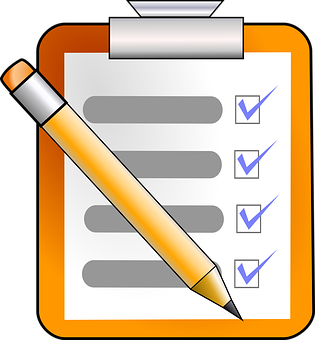Get Prepared for your next Licensing Visit
 A licensing visit can be a source of both #stress and anticipation for Maryland child care directors. However, with proper preparation, these visits can become a valuable tool for assessing and improving the quality of care provided. Here are some key areas to focus on as directors prepare for their next licensing visit:
A licensing visit can be a source of both #stress and anticipation for Maryland child care directors. However, with proper preparation, these visits can become a valuable tool for assessing and improving the quality of care provided. Here are some key areas to focus on as directors prepare for their next licensing visit:
1. Review Licensing Standards and Regulations
- Stay updated: Ensure that you are familiar with the latest Maryland child care licensing standards and regulations.
- Understand requirements: Clearly understand the specific requirements related to #health-and- #safety, #staff-qualifications, curriculum, and other essential areas.
- Address deficiencies: Identify any areas where your center may not be fully compliant and take steps to address them.
2. Conduct a Self-Assessment
- Evaluate all aspects: Conduct a comprehensive self-assessment of your center, covering everything from building safety to program activities.
- Identify strengths and weaknesses: Determine your center's strengths and areas for improvement.
- Create an action plan: Develop a plan to address any identified deficiencies.
3. Ensure Staff Preparedness
- Provide training: Offer training to staff on relevant topics such as child #development, first aid, and #emergency procedures.
- Review policies and procedures: Ensure that staff are familiar with and understand all center policies and procedures.
- Encourage professional development: Support staff in their professional #growth-and-development.
4. Maintain Documentation
- Keep accurate records: Maintain accurate and up-to-date documentation for all required areas, including staff qualifications, health records, and incident reports.
- Organize files: Organize your documentation in a clear and easily accessible manner.
- Scan and digitize: Consider scanning and digitizing important documents to ensure their preservation and accessibility.
5. Prepare for Common Inspection Areas
- Health and safety: Ensure that your center meets all #health-and safety standards, including fire safety, food safety, and sanitation.
- Staff qualifications: Verify that all staff members meet the required qualifications and have the necessary training.
- Curriculum: Review your curriculum to ensure it is age-appropriate, engaging, and meets educational standards.
- Child-to-staff ratios: Ensure that you maintain appropriate child-to-staff ratios at all times.
By following these guidelines, Maryland child care directors can increase their confidence and reduce anxiety leading up to their next licensing visit. A well-prepared center is more likely to receive a positive inspection report and can use the feedback to make improvements and provide even higher-quality care.
Categories
Contextually related Training(s)
Related Articles
- Become a Licensed Child Care Provider or Teacher Today Through childcareED!
- Lesson Planning for Infants and Toddlers
- How to Start a Daycare and Maintain Health and Safety
- How to Open a Home Daycare in New York
- Navigating the Maze of Child Care Licensing in Texas
- Are You Ready to Update Your Maryland Emergency Preparedness Plan (EOP)?
- 👧 How to Start and Open a Daycare in Texas? What You Need to Know
- Child Care Licensing in Illinois
- Emergency Preparedness for California Child Care Providers: What to Have, What to Practice, What to Document